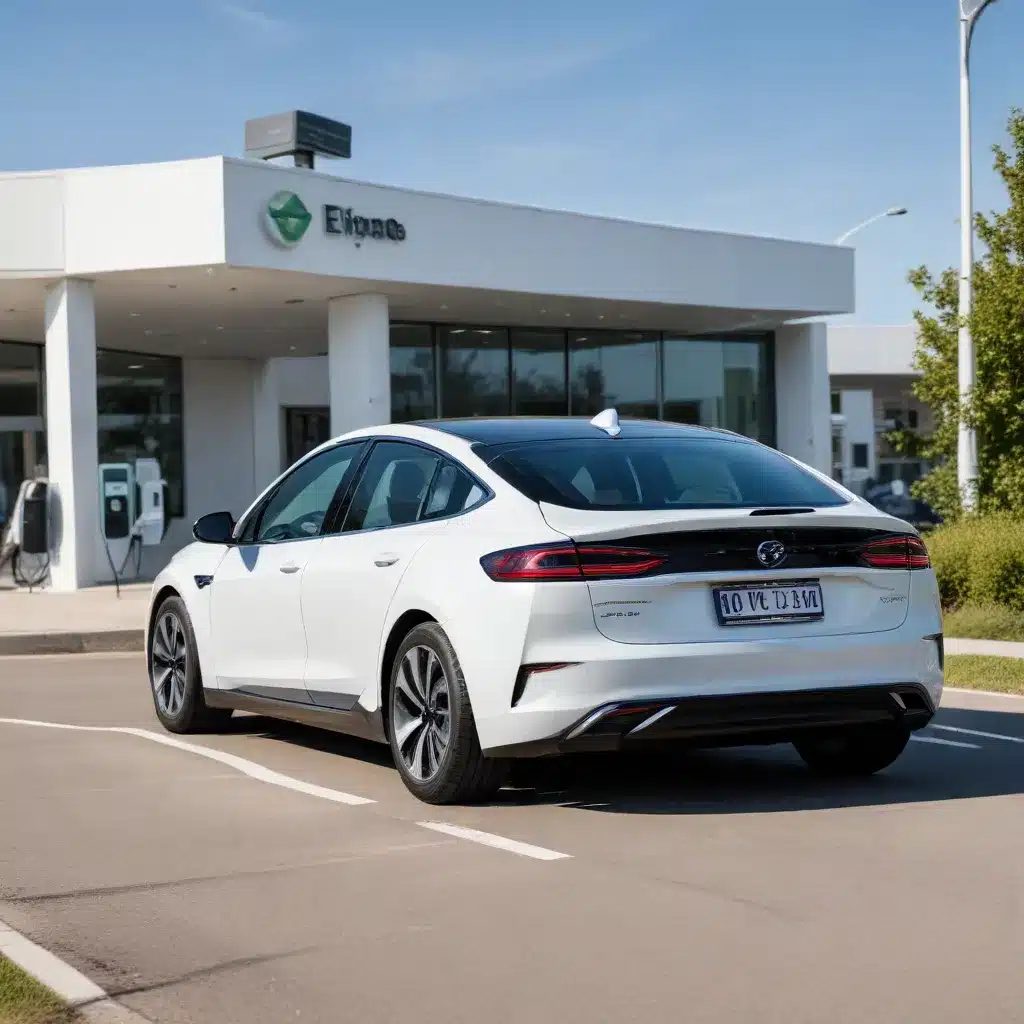
Roofing Considerations for the EV Era
As a seasoned roofing professional, I’ve been closely monitoring the rapid transition towards electric vehicles (EVs) and how it will impact the roofing industry. With the projected depletion of petroleum resources by 2052, the need to shift towards more sustainable transportation solutions is becoming increasingly evident. This transition presents both challenges and opportunities for homeowners, building owners, and roofing contractors alike.
Roofing Materials for the EV Age
The durability and longevity of roofing materials will play a crucial role in supporting the infrastructure required for widespread EV adoption. Asphalt shingles, metal roofing, and tile roofing are all viable options, but they will need to be adaptable to accommodate the installation of EV charging stations and the potential added load from increased energy demands.
Solar roofing, in particular, offers a unique opportunity to seamlessly integrate renewable energy generation with EV charging. By installing photovoltaic (PV) panels directly on the roof, homeowners can power their EVs using clean, on-site energy, reducing their reliance on the grid. Roof-top solar PV systems are easy to install on unoccupied roof space for US house owners. However, for multi-family residential buildings, the potential utilization of roof-top solar PV becomes a subject of future work, as effective sharing of resources for local power generation and development of community-shared EV charging infrastructure will need to be addressed.
Green roofing, with its vegetation and soil layers, can also contribute to the sustainability of EV-powered homes and buildings. These roofs not only provide insulation and reduce energy demands, but they can also help mitigate the urban heat island effect, which can impact the efficiency of EV batteries.
Maintaining Roofs in the Age of EVs
As EV adoption increases, roofing professionals will need to adjust their maintenance and repair strategies to accommodate the new electrical infrastructure. Regular roof inspections will become even more critical to ensure the integrity of the roofing system, identify any potential issues, and address them in a timely manner.
Roof repairs may also be necessary to accommodate the installation of EV charging stations, both at the residential and commercial levels. Roofers will need to be skilled in modifying roofing systems to provide safe and reliable access to the electrical grid, while maintaining the overall performance of the roof.
Seasonal adjustments will also be crucial, as extreme weather conditions can impact the efficiency of EV charging and battery performance. Proper ventilation and thermal management will be essential to ensure the longevity of roofing systems and their integration with EV infrastructure.
Enhancing Roofing Energy Efficiency for EVs
The increased energy demands from widespread EV adoption will place a greater strain on the electrical grid. Homeowners and building owners will need to focus on enhancing the energy efficiency of their roofing systems to minimize the impact on their energy consumption and costs.
Improved insulation, particularly in attic spaces, can help regulate the temperature within the building, reducing the energy required for heating and cooling, and ultimately, EV charging. Ventilation strategies, such as ridge vents and soffit vents, can also play a crucial role in maintaining optimal operating temperatures for EV batteries and charging systems.
The use of highly reflective roofing materials, such as metal or cool roofing, can help reduce the urban heat island effect and minimize the amount of energy required for EV charging and climate control within the building. Thermal mass, provided by materials like tile or slate, can also help regulate temperature fluctuations, improving energy efficiency.
Roofing Cost Considerations in the EV Transition
The initial costs of installing roofing systems that are EV-ready can be a significant factor for homeowners and building owners. Roofers will need to work closely with their clients to understand the specific requirements and plan for any necessary modifications or upgrades to the roofing system.
However, the long-term benefits of these investments can outweigh the upfront costs. Improved energy efficiency can lead to substantial savings on energy bills, particularly as EV adoption increases and electricity demands rise. Additionally, the potential for increased resale value of EV-ready homes and buildings may offset the initial roofing expenses.
Professional vs. DIY Roofing for EV Owners
As EV ownership becomes more prevalent, some homeowners may consider tackling roofing projects related to EV charging infrastructure themselves. While DIY roofing can be a cost-effective option, it’s essential to prioritize safety and ensure compliance with local building codes and electrical regulations.
Hiring qualified roofers who are well-versed in EV-related installations and modifications is highly recommended. These professionals can provide valuable expertise, ensure the integrity of the roofing system, and handle the necessary permitting and inspections.
For homeowners interested in DIY roofing, it’s crucial to access reliable tutorials and guides that address the unique considerations of EV-compatible roofing. Safety equipment, proper tools, and a solid understanding of electrical systems are essential to undertake these projects successfully.
Preparing for the EV Future
The transition to 100% electric vehicles by 2052 will undoubtedly have a significant impact on the roofing industry. Roofing professionals, homeowners, and building owners must work collaboratively to address the challenges and capitalize on the opportunities presented by this shift.
By adapting roofing materials, enhancing maintenance and repair strategies, improving energy efficiency, and carefully considering the cost implications, the roofing industry can play a crucial role in facilitating a smooth and sustainable transition to a future powered by electric vehicles.
Roofers El Cajon is committed to staying at the forefront of this evolving landscape, providing our clients with the expertise and guidance needed to navigate the complexities of the EV era. As we work towards a greener, more energy-efficient future, the partnership between roofing professionals and EV owners will be essential in shaping the built environment of tomorrow.

